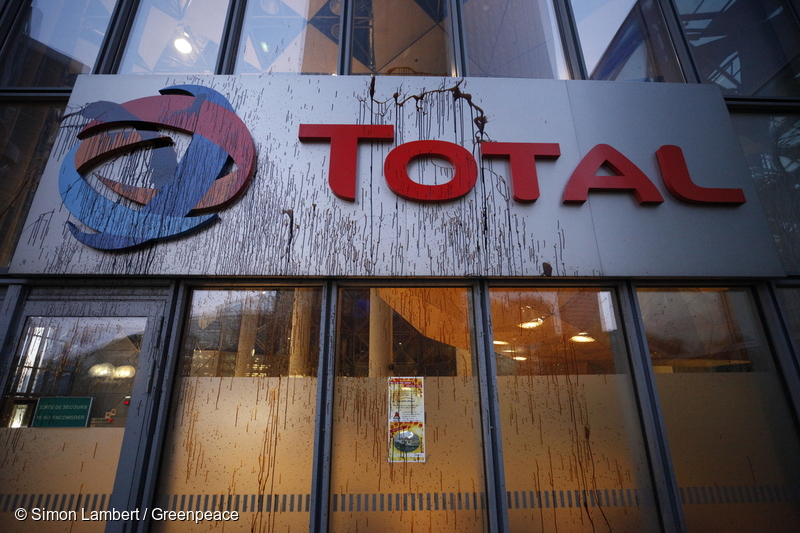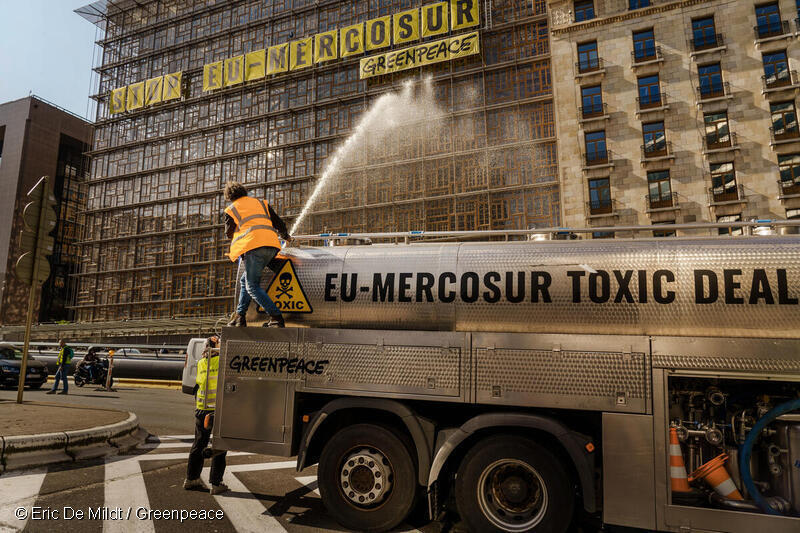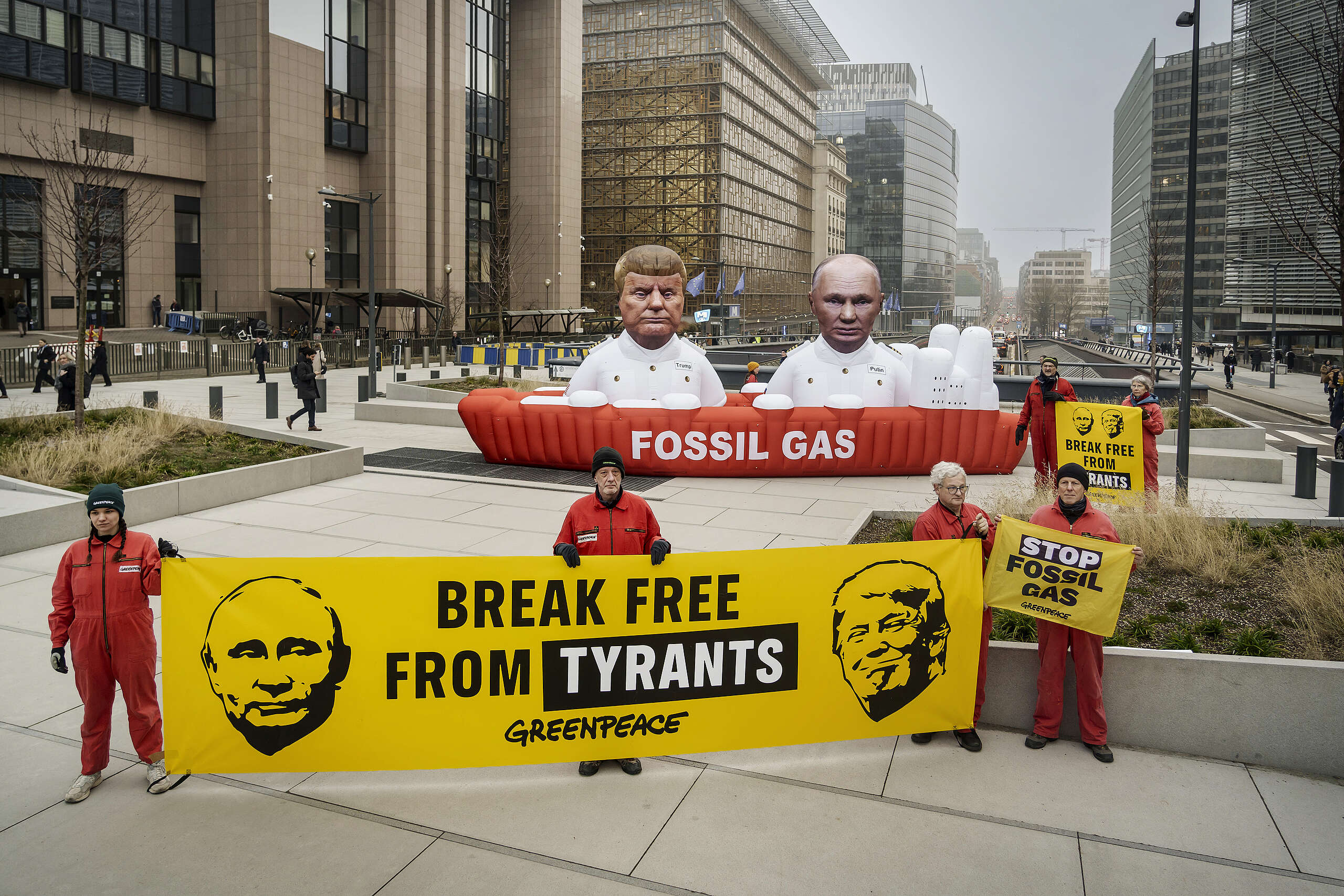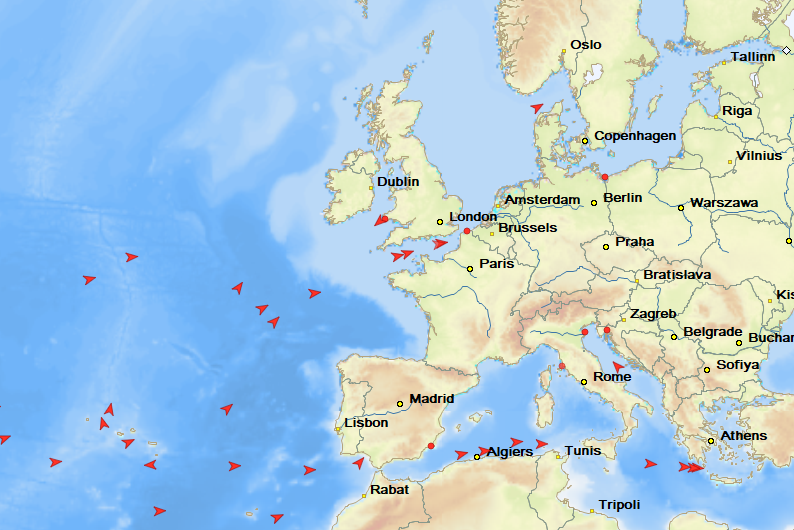
In response to the Russian regime’s war against the Ukrainian people, Russia and Belarus have been excluded from international rugby competitions and will not be able to qualify for the 2023 Rugby World Cup, which will be hosted by France.
However, there is a major inconsistency. TotalEnergies, the only Western oil and gas major not to have withdrawn from Russia following the invasion of Ukraine, is still one of the official sponsors of the 2023 event.
In an open letter published on 6 April and addressed to Claude Atcher, managing director of the 2023 Rugby World Cup, Greenpeace France has called on the organisers to be consistent: they must exclude TotalEnergies from the sponsors of the competition. (Click here to read the letter in English.)
“Excluding Russia and Belarus from international rugby competitions is a strong signal, but it’s incoherent and incomplete if TotalEnergies remains a sponsor of the World Cup,” said Edina Ifticene, oil and gas campaigner at Greenpeace France. “Sponsorship of the Rugby World Cup 2023 by TotalEnergies was already outrageous in the midst of the climate emergency. It is all the more so today, since the oil and gas major chooses to maintain its activities in Russia, meaning it could contribute to financing Putin’s war. TotalEnergies’ sponsorship represents 1% of the financing of the Rugby World Cup. Is that really worth it for the tournament’s organisers to let TotalEnergies sportswash its image and spoil the party?”
Greenpeace France first sounded the alarm about TotalEnergies sponsorship of the Rugby World Cup in June 2021, and is now launching a petition to ask the Rugby World Cup to exclude TotalEnergies from its sponsors.
Sports sponsorship or ‘sportswashing’ is a strategy used by oil and gas majors to restore their image and ensure their social acceptability, as explained in the documentary mini-series “L’Emprise Total” (“Total Influence”) by Greenpeace France.
The Intergovernmental Panel on Climate Change recently highlighted the fact that fossil fuel companies have used ads and sponsorships to delay climate action. The world’s climate scientists concluded that fossil fuel companies hijack ordinary people’s climate anxiety to promote their brands and to deflect corporate responsibility, while maintaining the status quo of a high-carbon, high-consumption economy, which is destroying the climate and the environment.
In October 2021, Greenpeace and thirty other European groups launched a European Citizens’ Initiative which calls on Europe to ban fossil fuel advertising and sponsorships.
If one million EU citizens sign the initiative, the European Commission will have to consider introducing a new law, which would treat fossil fuels similarly to how tobacco advertising and sponsorships have been regulated since 2003.
Silvia Pastorelli, climate and energy campaigner, Greenpeace EU



